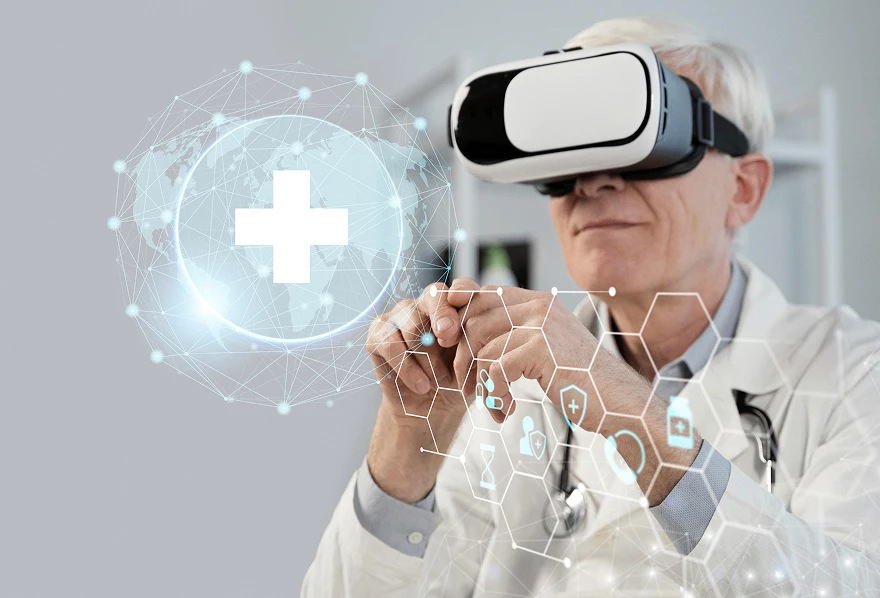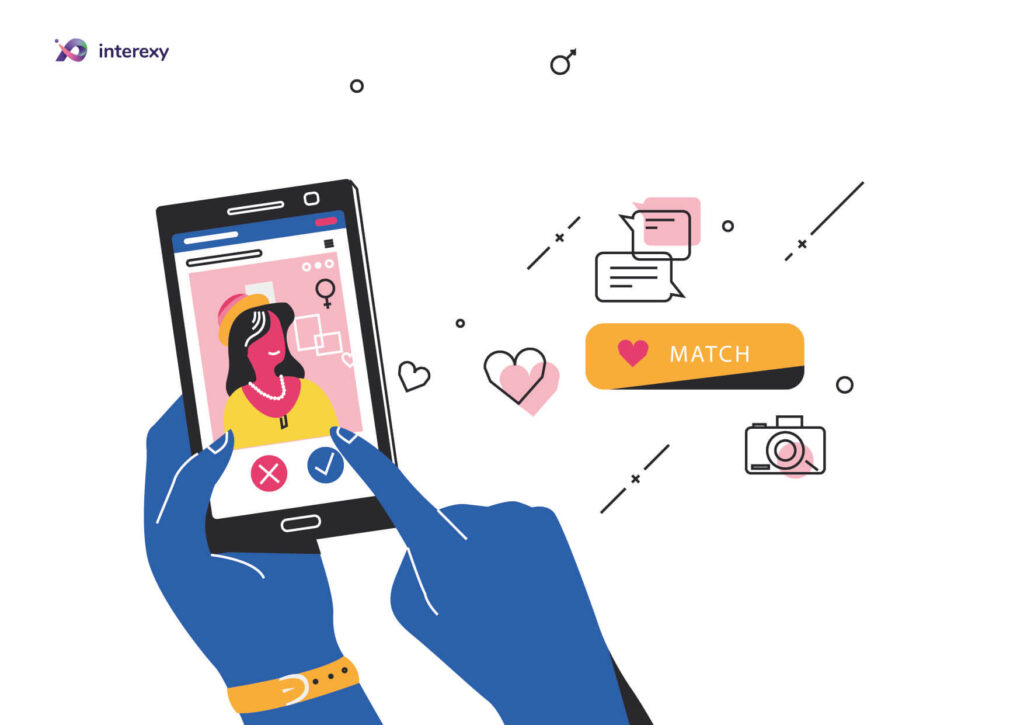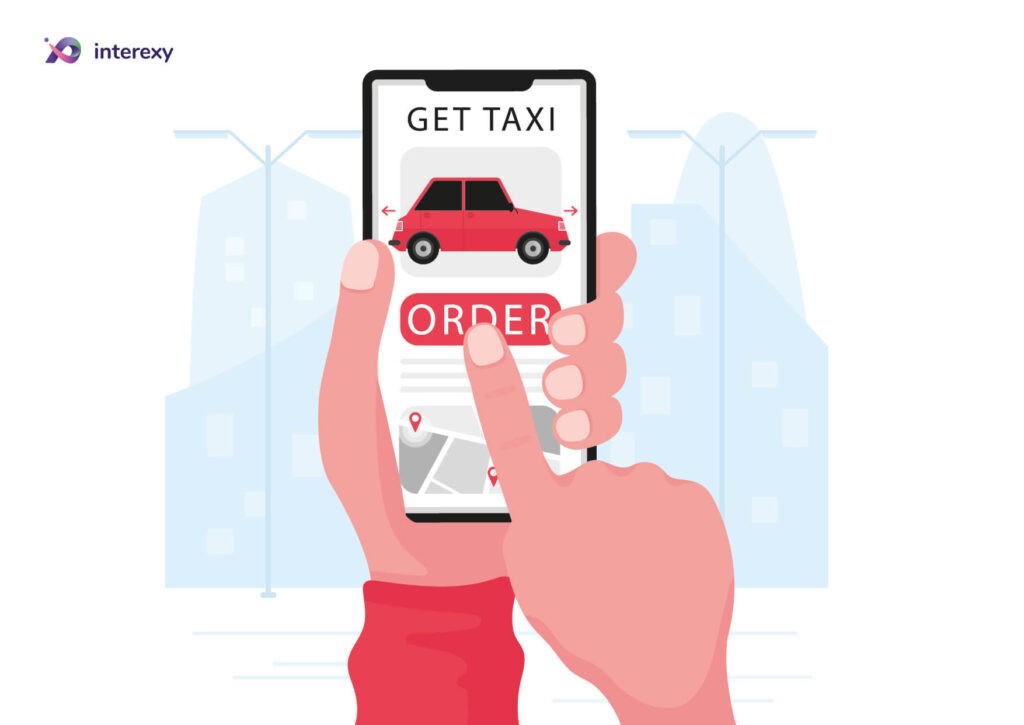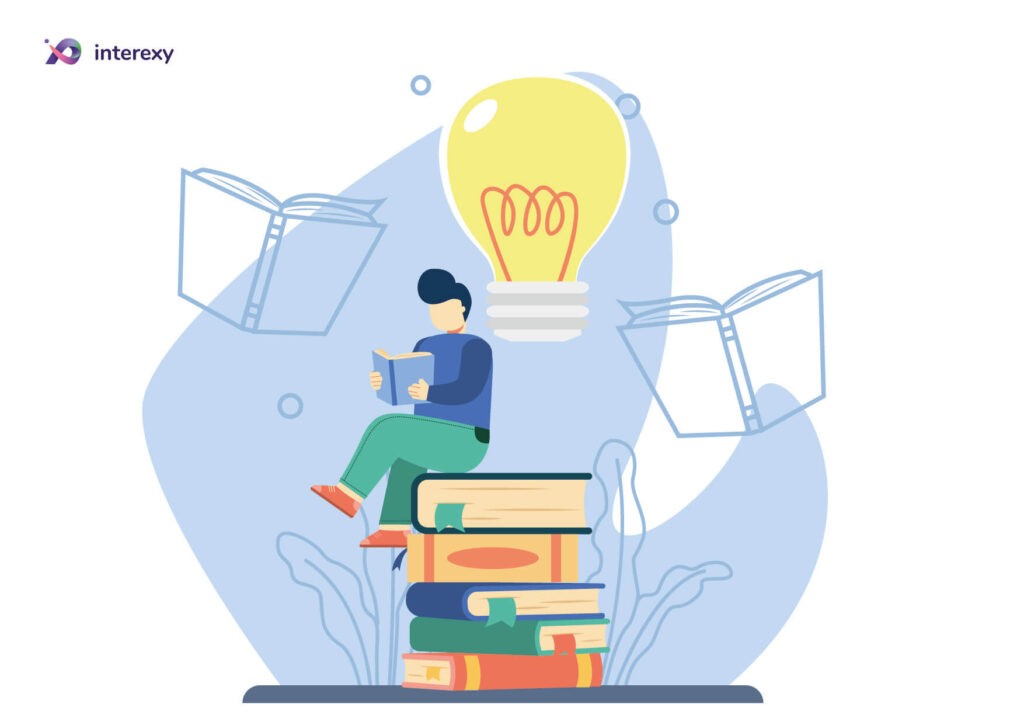July 27, 2022
The In-Depth Guide to E-prescription App Development | Everything You Need to Know
Table of content
- The In-Depth Guide to E-prescription App Development | Everything You Need to Know
- What is an E-prescribing App, and How Does it Work?
- Benefits of Electronic Prescription Apps
- Must-Have Features of E-prescribing Apps
- Compliance With Guidelines and Certifications
- E-prescribing App Development: Step By Step Guide
- How Much Does it Cost to Build an E-prescribing App?
- How Can Interexy Help?
- Final Thoughts
- FAQs
For the last few years, the leading healthcare organizations have been trying to modernize their healthcare operations to attract more clients, improve service quality, and ensure digital presence. However, it has long been only the idea that didn’t seem to become a reality. But COVID-19 made it possible for healthcare companies to start digital transformation as soon as possible.
The global pandemic and restrictions have brought telemedicine and electronic health records into high demand, providing minimum contact between doctors and users, offering more quick and efficient ways to get healthcare services, and reducing manual work.
Alongside doctor appointment apps, telehealth solutions, and mental health services, custom software- e-prescription has quickly become a new norm in the healthcare domain. Only within two years after COVID, the market revenue of e-prescription solutions adoption reached 1.2 billion. Experts predict that the market will expand to $3.3 billion by 2025 at a CAGR of 23.3%. Therefore, this industry opens lucrative opportunities for any business considering entering it with brand-new e-prescribing software.
Below we will show how to develop an e-prescribing app with steps, features, and cost of the process.
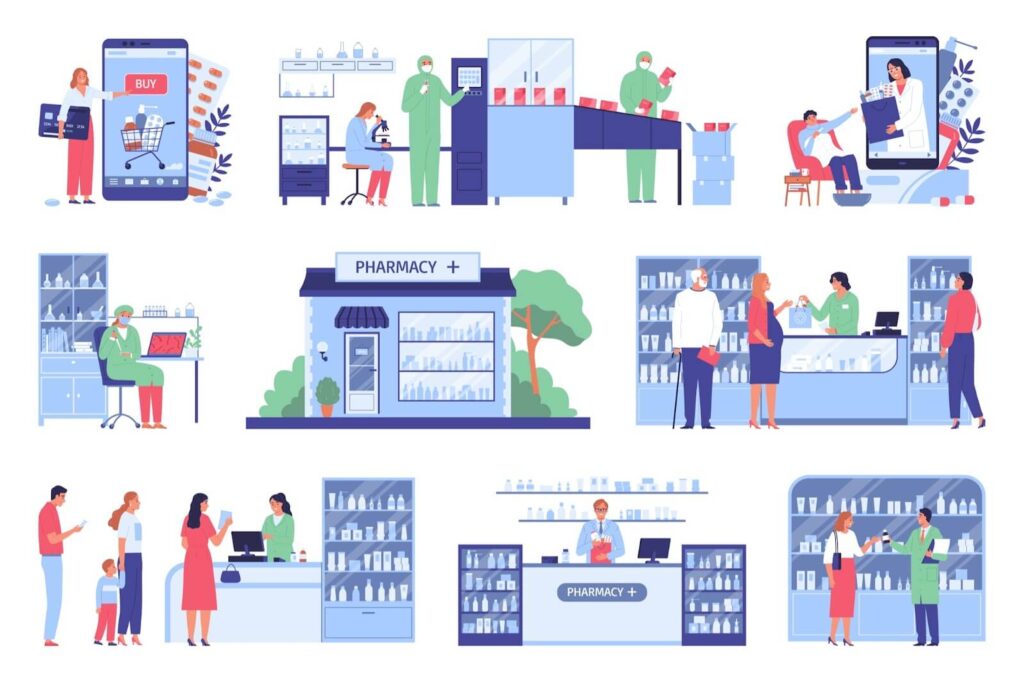
What is an E-prescribing App, and How Does it Work?
E-prescription is the software connecting doctors and patients to improve the quality of managing patients’ health and diseases remotely. It allows healthcare providers to offer prescriptions in a digital way, either through the mobile app or website. Using e-prescription applications ensures the prescription is error-free and simple to understand, allows doctors to provide better care, help users quickly manage their health as well as reduces the risks related to traditional handwritten prescription.
In addition, healthcare applications are highly protected by HIPAA compliance and sometimes use blockchain, making it safe for both sides to connect and work. E-prescriptions prevent human mistakes or calls, so sensitive patient data and reduced pharmacy expenses are guaranteed. To be more specific, the e-prescription application is also known as an advanced type of online doctor appointment app development.
Benefits of Electronic Prescription Apps
1. Reduce Human Error
In contrast to handwritten prescriptions, e-prescriptions are extremely understandable in terms of dosage, treatment, and medication requirements, so they do not require interpretation on the part of the pharmacist. This helps significantly reduce human errors, allowing doctors to deliver better service. It also reduces severe mistakes when patients get the wrong medication or inaccurate dosage.
2. Instant Clinical Alerts
A report shows that over 4.5 million visits to ERs and clinics happen due to preventable adverse drug events (ADEs). These ADEs are often caused by allergies, wrong dosages, interactions with other drugs, and other factors such as chronic use of specific medications.
E-prescription software can quickly reduce this issue since most of them are developed to interface with electronic health records (EHRs) that learn data about patients’ current and past medical history, like allergies and exciting diseases. As a result, these products are a handy tool for any doctor which can alert them when the prescription is going to interact with another treatment or also notify them when the medication in prescription contains dangerous allergen for specific patients.
3. Prescription Fulfillment Tracking
E-prescription software allows healthcare providers to track whether or not patients have picked up the medication or not, so they will also know when they need to provide refills. This helps doctors stay informed about those patients who continue their treatment and about patients who have stopped following prescribed treatment.
4. Reduce Readmissions
Based on research, over 1.6 million hospital readmissions happen per year, where more than 13 percent of them are caused by adverse reactions to prescribed medications. And 95% percent of these were caused by inappropriate prescription practices like not considering side effects based on the person’s health condition.
So when these systems are integrated with health record systems and databases, they give doctors access to information about allergies and drug history of a particular patient, significantly reducing the risk of readmissions.
5. Cost Savings
All benefits we have mentioned above can also lead to reduced costs in cost saving for practices that adopt e-prescription software. Other advantages like improved outcomes, better care, boosted efficiency, and reduced patient visits can help clinics and pharmacies save up to $240 billion within 10 years. To be more specific, the amount of money can also increase with the development of more advanced digital prescription applications.
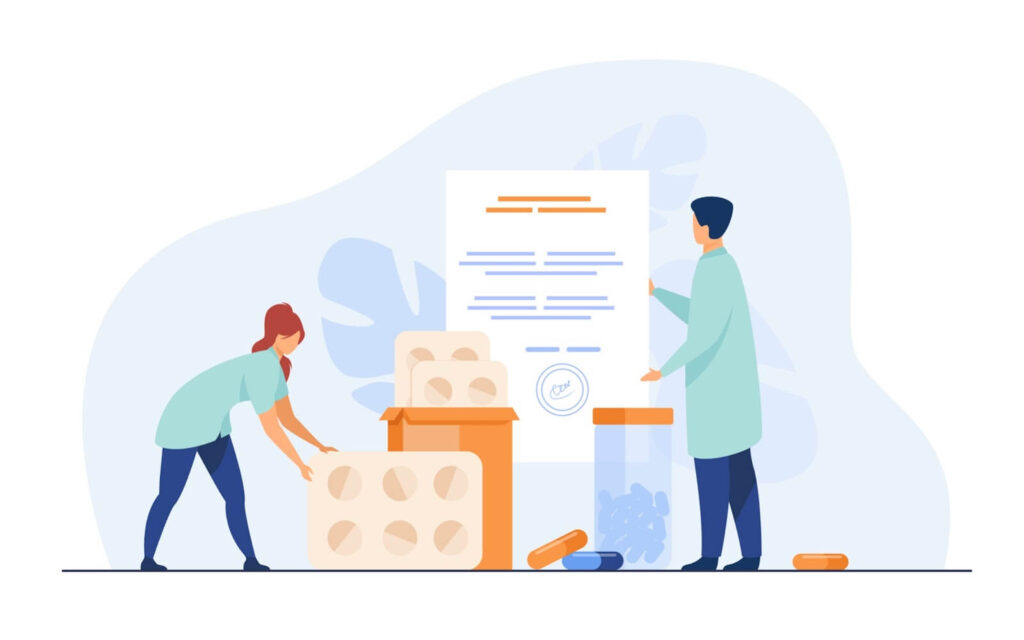
Must-Have Features of E-prescribing Apps
User Dashboards
Different types of users (prescribers, patients, pharmacies, and others) should have their own way of accessing and reviewing e-prescriptions. Therefore, you need to give each type of user an opportunity to create, send, manage, and receive e-prescriptions through web portals, apps, third-party solutions, and so on.
Therapy Management
Today’s therapy market is almost endless, offering a vast range of medical drug options to cover most unique needs. You should allow physicians (in the app will be known as prescribers) to choose from the list of medication equivalents and alternatives, which should include generic names and branded drugs. You should also include the cost-efficiency of the selected treatment, the age, lifestyle, as well as exciting chronic diseases of the user.
Generation and Submission of Drug Prescriptions
The ability to create and prescribe drugs is the core of an e-prescribing app. So you should ensure doctors can easily generate new prescriptions and provide them to the needed patient using phones, laptops, and so on. Once doctors prescribe the drug, they usually send the prescription to the pharmacy based on specific factors. However, you can also offer more options, like a transition hub in between.
Tracking of Prescription Fulfillment
When an electronic prescription has been created and sent to the pharmacy, it’s essential to make sure the doctors will be able to see whether the pharmacy successfully accepted/verified the prescription or not.
The patient side of the application should also allow them to review their prescriptions in the pharmacy as well as when they can wait for the upcoming orders or refills. At the same time, physicians should always see when patients refill. This can all be achieved through notifications via the chosen method (email, phone alerts, calls, and so on).
Adverse Interaction Prevention
In case of an adverse reaction, the patient can inform about it in the app, and the eRx software will also send this to the doctor so he can suggest better alternatives. The best way to create this feature is to integrate the app with EMR (electronic medical records) or EHR platforms. It is a specialized system that can help with a long-term track for each patient’s health problems and specific needs.
Medication History
Finally, any e-prescription app should allow physicians to access each patient’s medication history, which can be derived from a vast range of sources. This is an essential feature that helps doctors prescribe accurate drugs and reduce the risk of readmissions in case of any changes or new treatments.
Compliance With Guidelines and Certifications
Since the e-prescription app stores and manages sensitive patient data, communication between parties and prescriptions should always be confidential and protected. This is why you need to learn about regulations and guidelines needed when you want to develop e-prescribing software.
HIPAA
HIPAA is short for Health Insurance Portability and Accountability Act and represents a federal law that provides national standards to protect sensitive information regarding patient health from being disclosed without the patient’s consent or knowledge.
GDPR
The GDPR is short for General Data Protection Regulation (GDPR) and represents the toughest privacy and security law in the world. Those who develop health apps and do not follow GDPR will get harsh fines, with amounts reaching millions of dollars.
USCDI
USCDI is short for the United States Core Data for Interoperability and represents a standardized set of health data classes and constituent data pieces for interoperable health information exchange.
FHIR
FHIR is short for Fast Healthcare Interoperability Resources and represents a standard that defines how computers can exchange healthcare information regardless of how it is stored in those systems.
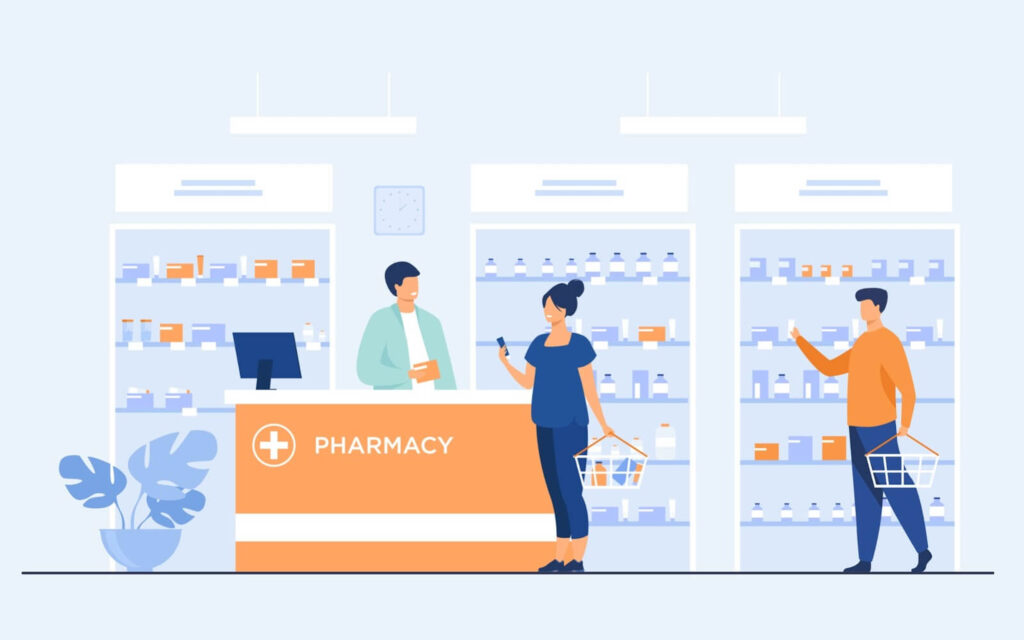
E-prescribing App Development: Step By Step Guide
1. Market Research and Planning
This step is essential in an e-prescription app development process as it defines whether your app will be successful or not. This is because the only market analysis will show you what your future users look for, who creates competition, and what you can offer to attract users and overcome competitors in the long term.
This also helps your future development team to start the development as soon as possible and avoid extra costs on planning things you could do by yourself. Things you need to consider at this stage are:
- Potential market issues that can slow down the development;
- Potential ways to overcome these issues;
- Key features needed for every party (patients, doctors, pharmacists, and admins);
- A platform that your app is going to operate on;
- Resources needed to develop this app;
- Whether you need advanced technologies or not.
2. List Key Features
Once you create the development plan and perform market research, you can build a list of core features your MVP version should have. MVP building is the best way to test your idea in practice and also identify costly issues. Luckily, we have already listed the main features you can consider when going through this stage.
3. Find the Healthcare Software Development Company
Since healthcare applications always require compliance with regulations and sometimes need specific skills, it is best to hire an experienced development team to ensure success, reduce cost and streamline the overall process.
It is essential to make sure the chosen company provides specialized resources and has pharma app development services. Make sure that this company is also familiar with technologies like AR, VR, AI, and blockchain and knows how to successfully implement them in healthcare solutions.
How Much Does it Cost to Build an E-prescribing App?
- Discovery stage can cost between $10,000 – $20.000.
- Specification requirements involving all members of the process cost between $10,000 – $40,000.
- The design stage is usually up to $30,000.
- Development cost can be highlighted as everything depends on the list of features, the complexity of the technologies used, the number of developers needed, the location of engineers, their skills, and the type of team you hire.
- Testing usually costs somewhere between $10,000 – $25,000
- Ongoing support costs will depend on how long you plan to maintain this project.
How Can Interexy Help?
Interexy is a trusted development and consulting agency focusing on healthcare and blockchain mobile and web software development. Since healthcare app development is one of our core domains, each client gets specialized resources. This means your project will be done by experts in this field who know every minor point of the process and industry requirements.
Interexy serves medical providers with top-notch healthcare software development services and advanced and feature-rich telemedicine app development solutions. On top of that, we guarantee that your product follows and is compliant with all legal and industry guidelines.
We have many successful projects that are now launched and monetized. For example, we have been a trusted partner for a New York-based startup – AcneAway. The application has quickly become a convenient and hassle-free way to connect patients and a doctor online and check the results of treatment right from home.
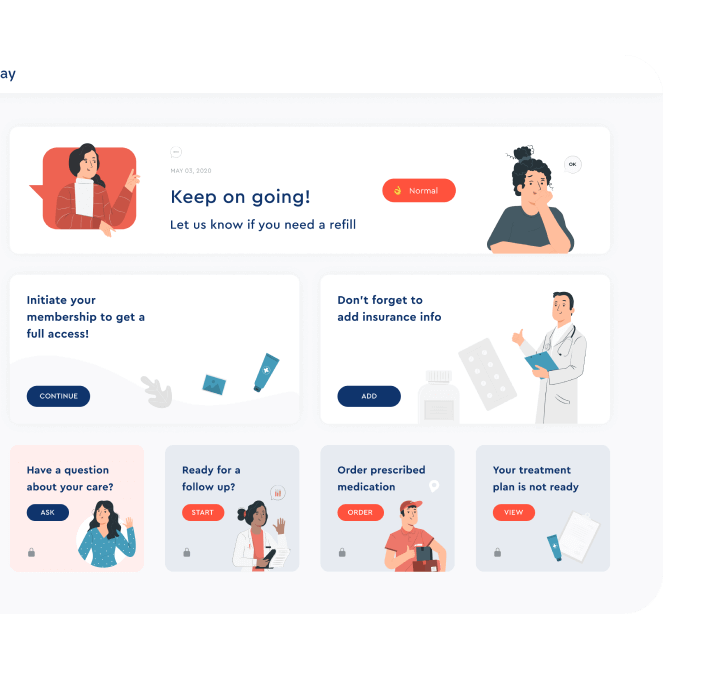
Final Thoughts
The healthcare industry is flourishing, and it is the best time for any clinic, pharmacy, or healthcare organization to streamline and digitalize the outdated working model by developing an e-prescription app. This guide can help clear the picture of the development process by learning the steps, features, and cost of this application. If you have any questions or want to discuss your idea, contact our experts!
FAQs
What is e-prescribing?
E-prescribing software allows doctors to prescribe treatment online and work as a digital bridge between patients and healthcare organizations.
What challenges does e-prescription app development solve?
E-prescription applications are designed to help reduce human error and manual work, lessen the number of readmissions, minimize physical contact, and more.
Why is e-prescribing required?
E-prescribing apps are required for any clinic, pharmacy, or healthcare organization to offer better care, reduce issues related to patient health, reduce operating costs and stay in demand in the long term.




